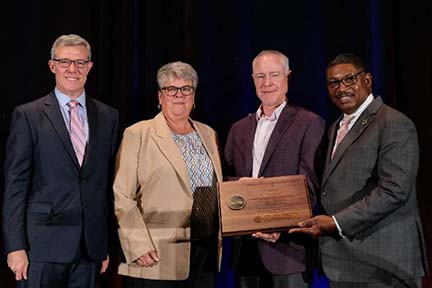
by orionontv | Oct 26, 2022 | Transportation
AASHTO honors MDOT with 2022 President’s Transportation
Awards in equity and partnerships
Fast facts:
– MDOT recently received two 2022 President’s Transportation Awards from AASHTO for work in equity and building partnerships.
– The MDOT executive team was recognized for creating a chief culture, equity, and inclusion officer and reorganizing various working areas under that role.
– The department also was recognized for partnerships with Historically Black Colleges and Universities through the MDOT Transportation Diversity Recruitment Program.
ORLANDO, Fla. and LANSING, Mich. – The American Association of State Highway and Transportation Officials (AASHTO) presented two 2022 President’s Transportation Awards to the Michigan Department of Transportation (MDOT) for work in equity and building partnerships with Historically Black Colleges and Universities (HBCU). The awards were announced last week at the organization’s annual meeting in Orlando, Fla.
“It is an honor for me and other department employees to be recognized for our commitment to equity and inclusion and the work we are doing with our partners to be sure those values underpin our work,” said MDOT Director Paul C. Ajegba. “I’m also pleased at the spotlight this puts on our Transportation Diversity and Recruitment Program’s (TDRP) vital work providing opportunities for historically under-represented students.”
The President’s Transportation Award for Equity recognizes MDOT’s executive team: Director Paul C. Ajegba, Chief Operations Officer Bradley Wieferich, Chief Administrative Officer Laura Mester, and Chief Culture, Equity, and Inclusion Officer Terri Slaughter.
The murder of George Floyd in May 2020, and the widespread protests that followed, forced many organizations to confront the challenging issues of race, equity, diversity, and inclusion.
At MDOT, senior management saw the crisis as an opportunity to reorganize, creating a new position titled chief culture, equity, and inclusion officer. This deputy director-level position oversees areas within the Bureau of Transportation Planning, the Office of Organizational Development, the Office of Business Development, the Equal Employment Opportunity Office, and the Office of Economic Development. In addition, the chief culture, equity, and inclusion officer will help MDOT make meaningful progress in optimizing its organizational culture, aligning equity and inclusion goals with business outcomes, and determining how MDOT’s long-range plans and investments will impact safety, access, and mobility for all the state’s transportation users.
The President’s Transportation Award for Partnerships honors MDOT’s work with HBCUs through the TDRP, which offers valuable on-the-job training and job shadowing to undergraduate students pursuing degrees in engineering or other transportation-related careers.
The goal of the TDRP is to recruit and introduce underrepresented groups of students to transportation-specific career opportunities. While participating in this program, students will develop professional competence, long-range career goals, integrate work experiences with academic knowledge, establish a professional network, and earn income that can assist with college expenses.
TDRP students will work alongside other MDOT-sponsored on-the-job training program participants, internal staff and external professionals who provide engineering, technical, inspection, and project management services for state road and bridge projects.
AASHTO represents state departments of transportation in all 50 states, the District of Columbia, and Puerto Rico. AASHTO is a nonprofit, nonpartisan association serving as a catalyst for excellence in transportation.
Photos courtesy of AASHTO:
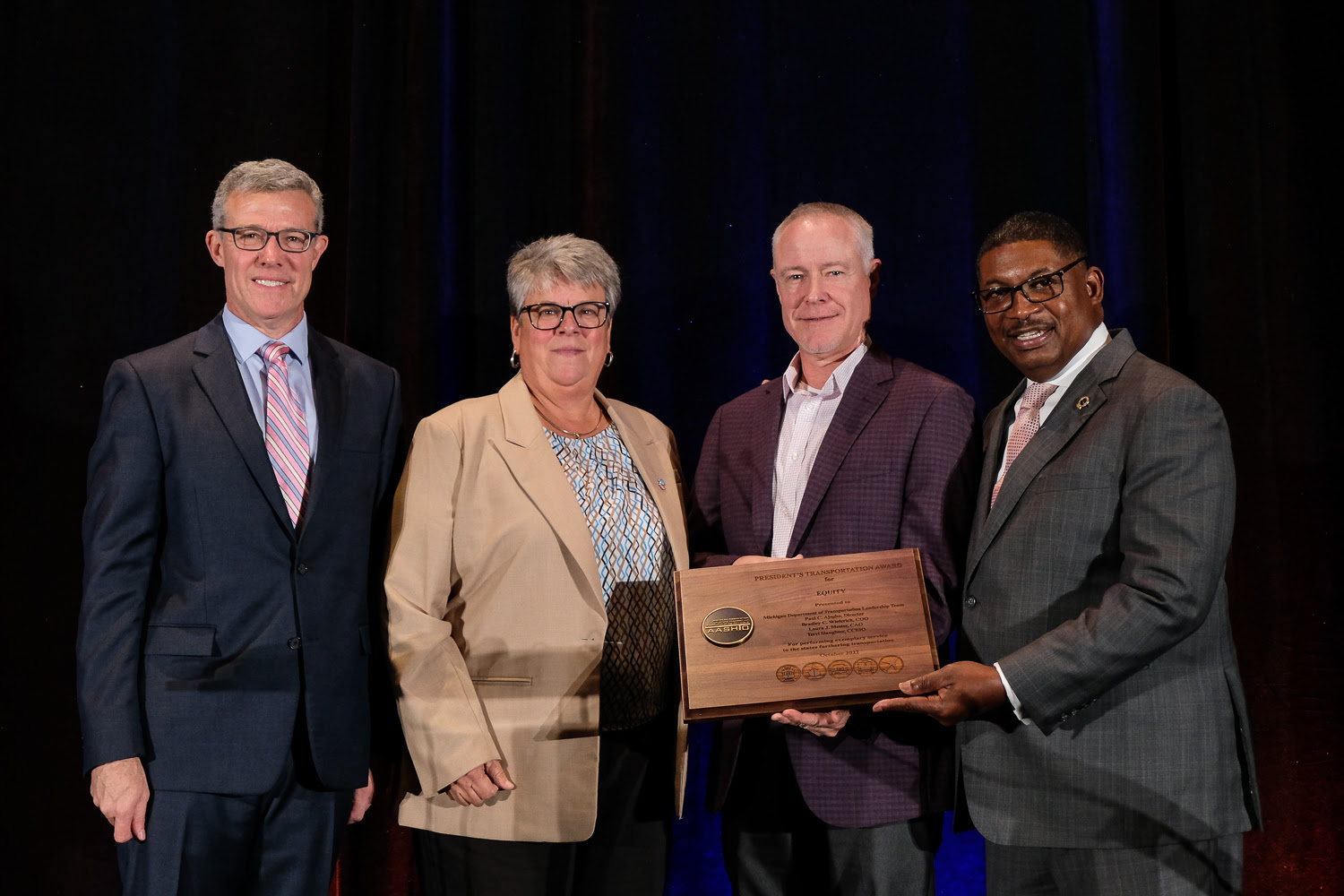 |
| Equity award (left to right): Jim Tymon, AASHTO executive director; Laura Mester, MDOT chief administrative officer; Bradley Wieferich, MDOT chief operations officer; and Dr. Shawn Wilson, past AASHTO president and Louisiana Department of Transportation and Development secretary.
|
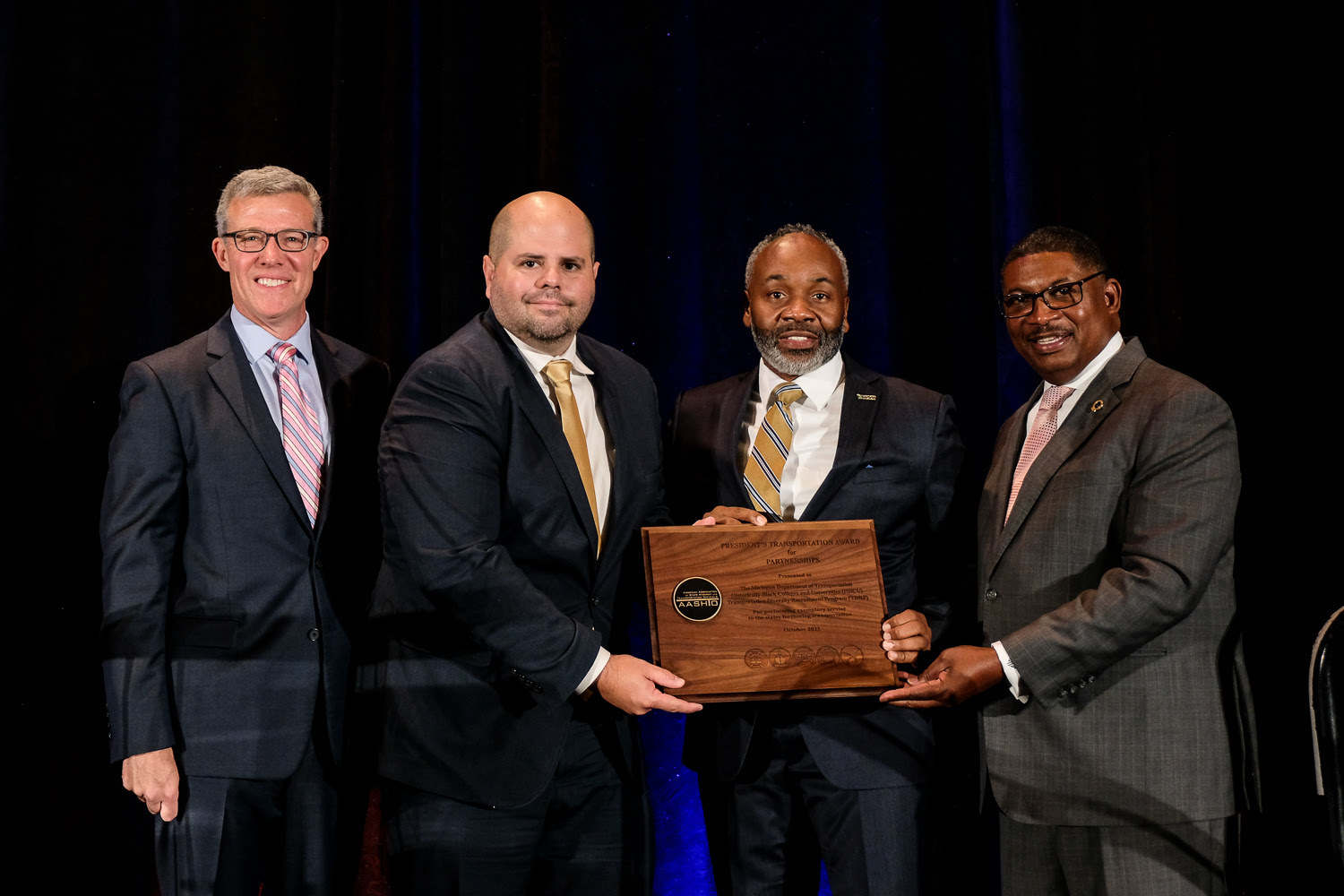 |
| Partnerships award (left to right): Jim Tymon, AASHTO executive director; James Fults, MDOT Workforce Programs and Recruitment Unit manager; James Jackson, MDOT Transportation Diversity Recruitment strategy coordinator; and Dr. Shawn Wilson, past AASHTO president and Louisiana Department of Transportation and Development secretary. |
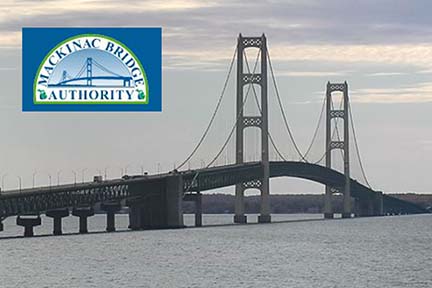
by orionontv | Sep 28, 2022 | Transportation
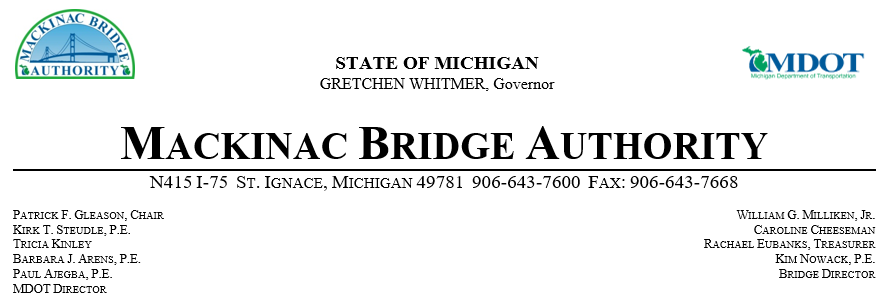
FOR IMMEDIATE RELEASE
September 27, 2022
|
|
CONTACTS
Patrick “Shorty” Gleason: (810) 280-5748
Bill Milliken, Jr: (734) 945-5367
Tricia Kinley: (517) 290-2613 |
Mackinac Bridge Authority urges Michigan Senate to pass legislation to protect Michigan’s bridges from trespassers, ensure safety of motorists
ST. IGNACE, Mich. - The Mackinac Bridge Authority today called on the Michigan Senate to take action on House Bill 5315 (Damoose, R-107) which was passed with overwhelming support in the Michigan House on February 16, 2022. The legislation – which was set for a vote by the full Senate last week but was inexplicably pulled from the agenda at the last minute – would make it a felony to trespass on Michigan’s major bridges including the Mackinac Bridge.
The Mackinac Bridge Authority pursued the legislation following incidents that endanger the safety of motorists and workers who need to investigate these incidents.
“It is time to stop playing games with this piece of legislation,” said State Rep. John Damoose. “The Mackinac Bridge is arguably the most critical piece of infrastructure in our state, and it is our duty as legislators to protect it. I call upon my colleagues in the Senate to pass House Bill 5315 immediately.”
The legislation would also apply to the Houghton-Hancock bridge, the Grand Haven Bascule Bridge, the new Gordie Howe International Bridge, the Ambassador Bridge, the Blue Water Bridge, the Zilwaukee Bridge, the International Bridge, the Charlevoix Memorial Drawbridge, the Windsor Tunnel and all other movable bridges.
“This legislation is imperative to maintaining safe driving conditions and send the message that these risky stunts will not be tolerated. Senate Republicans have the ability to move this legislation to the Governor’s desk but have inexplicably failed to do so,” said Shorty Gleason, Chair of the Mackinac Bridge Authority, and member of the Authority for 18 years. “With one session day left before they start campaigning, they still have an opportunity to get this legislation done.”
At the same time, the Senate is also considering legislation (Senate Bills 1078 and 1014, McBroom, R-38) that could threaten the safety of motorists, by expanding the types of motorized vehicles that can operate on the Mackinac Bridge to include farm implements that are currently only allowed on the “back” roads of Michigan. The Mackinac Bridge Authority is strongly opposed to SBs 1078 and 1014.
Farm implements vary greatly in purpose, size, width, weight and are currently prohibited from traveling on any “limited access” highway. SBs 1078 and 1014 would allow non-trailered farm equipment to drive on the Mackinac Bridge. The legislation was introduced in response to a farmer who wants to drive a manure-spreader across the Mackinac Bridge without using a trailer and following the permit process that everyone else follows. The Mackinac Bridge Authority has no evidence of the kind of demand that would warrant this serious change in law. Senate lawmakers are also considering linking the three bills together through a procedural move that would kill HB 5315 unless SBs 1078 and 1014 became law.
“The idea that Senate lawmakers might link the manure legislation to House Bill 5315 is shocking. Motorists in Michigan deserve to have the Senate pass legislation to stop trespassers from disrupting bridge crossings, and hold them accountable, without linking it to legislation for one Senator seeking a special-interest carve-out. No other industry would benefit from this counterproductive legislation,” said Bill Milliken, Jr., member of the Bridge Authority.
“The Mackinac Bridge Authority gave due consideration to SBs 1078 and 1014 and is always willing to work on common-sense legislation. However, these bills do not fit the definition of ‘common-sense’ and therefore we remain strongly opposed to this legislation,” said Tricia Kinley, member of the Bridge Authority.
“I have spent three decades working in the legislative process, and this is a classic example of how bad bills get passed, since they can’t stand on their own merit. We need Senate Republicans to remain focused on legislation to ensure the safety of motorists using our bridges; passing House Bill 5315 without linking it to bad legislation is a great way to do so,” concluded Gleason. |

by orionontv | Sep 27, 2022 | Transportation
The survey says… Michigan roads are improving
On this week’s Talking Michigan Transportation podcast, a conversation with Richard Czuba, a veteran Michigan pollster and founder of the Glengariff Group.
Listen now: https://www.buzzsprout.com/1374205/11373483-the-survey-says-michigan-roads-are-improving

A recent poll commissioned by his clients, The Detroit News and WDIV-TV, included some questions to measure Michigan voter perceptions of road conditions and repairs.
Among issues discussed:
- What drives perceptions of road conditions. Is it mostly informed by how rough the pavement is on the street where a person lives or a local arterial or freeway used for commuting?
- Demographic breakdowns in the polling and differences in perception by gender and age group.
- Czuba’s research over the years and his conclusions about why people might be expressing more optimism about road work in Michigan.
- Perceptions of the Rebuilding Michigan bonding plan.
As Czuba told the Detroit News when the poll was released: “It’s a perfect example of the voters aren’t stupid — they can actually make sense of what the issues are, who’s doing what.”
|
|
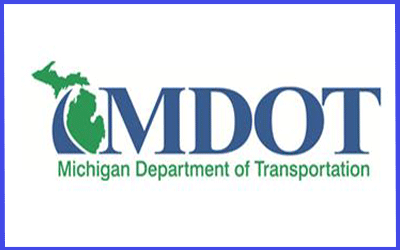
by orionontv | Sep 21, 2022 | Transportation
|
FOR IMMEDIATE RELEASE MDOT MEDIA CONTACT ELECTREON CONTACT
September 21, 2022 Michael Frezell Janine Ward
517-281-6519 313-536-7806
FrezellM@Michigan.gov electreon@antennagroup.com
Partners on the first-in-the-U.S. public wireless EV charging road, MDOT and Electreon enter into agreement
to explore larger road deployment
Fast facts:
– Electreon was selected to build a public wireless in-road charging system to pilot on a 1-mile section of road in Detroit.
– MDOT and Electreon have signed a five-year agreement to develop and work toward implementing a scalable wireless public in-road charging network.
– Research and lessons learned as part of this agreement will help to develop best practices framework for wireless electric road system implementation and management in all of Michigan.
LANSING, Mich. and LOS ANGELES, Calif. – Today, the Michigan Department of Transportation (MDOT) and Electreon have entered into a five-year agreement to develop and work toward implementing a scalable wireless public in-road charging network for electric vehicles (EV). A first in the United State, the in-road system charges EVs while in motion or stationary.
“This agreement helps solidify Michigan as the U.S. leader in developing and implementing a wireless in-road charging network,” State Transportation Director Paul C. Ajegba said. “We now can work toward better policy and regulatory framework that provides a welcoming environment for this unique technology. Ultimately, the research and work conducted on this project will help lead to large-scale deployment across Michigan and the U.S.”
Under the agreement, MDOT and Electreon will work collaboratively to develop best practices for a wireless electric road system (ERS) implementation and management and add strategic partners. They will analyze the benefits associated with ERS pertaining to pressure on the grid and cost associated with large-scale electrification of the transportation sector, integrate it in the 2045 electrification strategy, leverage state and federal funding, and explore possible business models for ERS to serve as a revenue stream for the state and as an attractive alternative for fleet operators. Reduction of pollution will be addressed, especially in economically disadvantaged neighborhoods, and public transit agencies will be engaged to ensure accessibility to the wireless ERS infrastructure.
“The potential for electrifying roads and cities is practically endless and working together with MDOT we are reshaping the future of transportation,” said Oren Ezer, CEO and co-founder of Electreon. “Through ongoing collaboration on our Detroit project, MDOT has proven to be innovative leaders in the industry. We’re excited to enter into this agreement to create a blueprint for scaling wireless charging for all EVs across Michigan and the U.S. and look forward to aligning with additional DOTs in the future.”
In February of this year, the State of Michigan announced Electreon was awarded a contract to build a 1-mile ERS in Detroit. The company is leading the development, design, evaluation, iteration, testing, and implementation of the inductive vehicle charging pilot program, which aims to be operational as of 2023. Working with NextEnergy and Jacobs Engineering Group, the project is being hosted by and live within Michigan Central, a mobility innovation district, and supported by partners like Ford Motor Co., DTE Energy, and the City of Detroit.
The parties believe that electrified roadways have the potential to accelerate adoption of EVs by consumers and fleet operations alike by enabling continuous vehicle operations and turning public streets into safe and sustainable shared energy assets. The State of Michigan is exploring electrifying state-owned vehicles by 2030, including EV trucks, vans, and cars. |
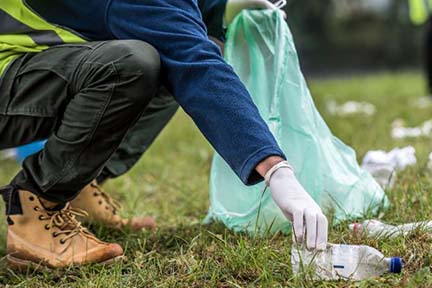
by orionontv | Sep 20, 2022 | Transportation
|
FOR IMMEDIATE RELEASE MEDIA CONTACT
September 20, 2022 Dan Weingarten
906-250-4809
WeingartenD@Michigan.gov
Final Adopt-A-Highway cleanup coming Saturday
Fast facts:
– The final Adopt-A-Highway of the year is Sept. 24-Oct. 2.
– Adopt-A-Highway volunteers regularly collect more than 60,000 bags of litter annually.
– Sections of highway are still available to adopt. Go to www.Michigan.gov/AdoptAHighway
for more information.
LANSING, Mich. – Before the leaves start to turn and fall, thousands of Michigan Department of Transportation (MDOT) Adopt-A-Highway volunteers will fan out across the state to collect litter along highway roadsides from Saturday, Sept. 24, through Sunday, Oct. 2.
This is the third and final scheduled pickup period of the year.
Every year, Adopt-A-Highway volunteers regularly collect more than 60,000 bags of trash. The popular program began in Michigan in 1990 and has grown to involve more than 2,900 groups cleaning more than 6,000 miles of highway.
Motorists should be on the lookout for the groups as the clean the roadsides beginning Saturday. When working in a highway right of way, Adopt-A-Highway volunteers wear high-visibility, yellow-green safety vests required by federal regulations. MDOT provides free vests and trash bags, and arranges to haul away the trash.
Getting involved in the program is straightforward. Volunteers include members of civic groups, businesses and families. Crew members have to be at least 12 years old and each group must include at least three people. Groups are asked to adopt a section of highway for at least two years. There is no fee to participate. Adopt-A-Highway signs bearing group names are posted along the stretches of adopted highway.
Sections of highway are available for adoption all over the state. Interested groups can get more information on joining the program at www.Michigan.gov/AdoptAHighway. |
by orionontv | Sep 19, 2022 | Transportation
|
FOR IMMEDIATE RELEASE MEDIA CONTACT
September 19, 2022 Curtis Stewart
517-974-1737
frmn2009@sbcglobal.net
“See Tracks? Think Train!” during Rail Safety Week
LANSING, Mich. – The Michigan Department of Transportation and Michigan Operation Lifesaver are partnering together to raise rail safety awareness during Rail Safety Week this week. Although most Americans today know the dangers associated with drunk driving, distracted driving or texting while crossing the street, many are unaware of the risks they are taking around railroad tracks.
According to preliminary statistics from the Federal Railroad Administration, 614 pedestrians were killed and 526 injured in trespassing incidents on railroad tracks in 2021, with an additional 236 fatalities and 668 injuries resulting from vehicle-train collisions at rail crossings. In fact, every three hours in the United States a vehicle or person is struck by a train. In Michigan in 2021, there were eight trespasser deaths and three injuries, along with six grade crossing fatalities and 20 grade crossing injuries. The use of headphones has likely been a factor in some of these incidents.
So, why is this happening, and what can we do about it?
In our distracted society, people may become complacent or might not understand the need for caution near railroad tracks and trains. Pedestrians and drivers often simply do not realize that it is dangerous and illegal to walk on railroad tracks or how long it takes the average freight train to stop.
Michigan Operation Lifesaver, which is celebrating its 50th anniversary this year, works every day to make communities safer by offering free rail safety education programs in states across the nation.
Trained volunteers tell people that trains are quieter and moving faster than they appear; in some places the speed is up to 110 mph. Since it can take a mile or more for a fully loaded train to stop, by the time an engineer sees a person or vehicle on the tracks and applies the emergency brakes, it is often too late to avoid a collision.
Michigan Operation Lifesaver also conducts free training classes for first responders, school bus drivers and professional truck drivers, along with other public awareness activities to help reduce these incidents and save lives. In addition, Operation Lifesaver offers a suite of safety materials, including lesson plans for teachers, safety brochures and videos for families, and a free Railroad Investigation and Safety Course (RISC) for first responders.
Everyone can save a life in their community by sharing the rail safety message and remembering this simple phrase: “See Tracks? Think Train!” Visit the national Operation Lifesaver website to learn more, take the Rail Safety Pledge, and find safety tips to share with your friends and family. Together, we can stop track tragedies during Rail Safety Week and all year round.
###
MDOT: Working with our partners at airports, bus systems, marine and rail to find innovative solutions for
Michigan’s transportation systems.
www.twitter.com/MDOT_Rail | www.facebook.com/MichiganDOT | www.youtube.com/MichiganDOT
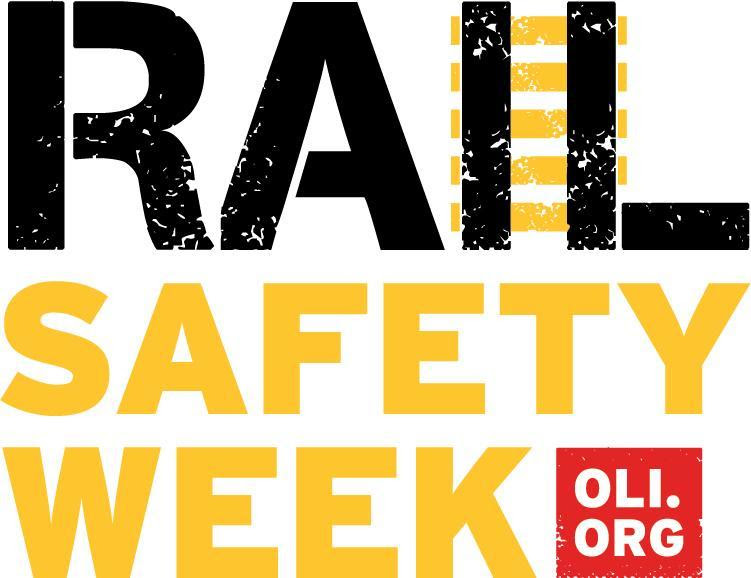
Rail Safety Week evergreen logo, available at https://oli.org/about-us/news/event-materials.
|












